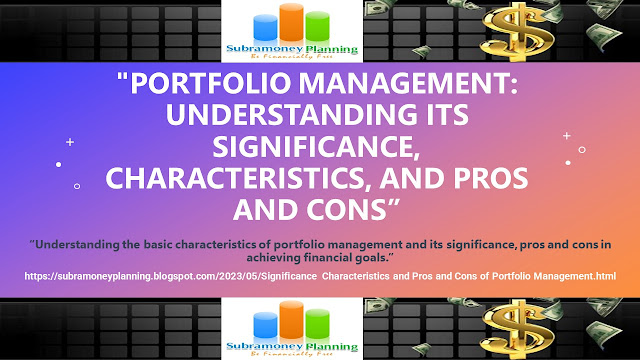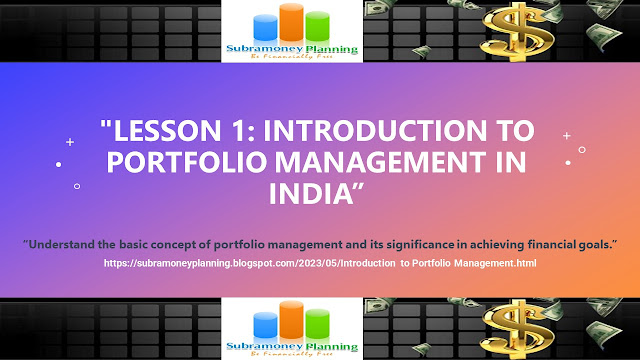A strong mindset and continuous personal growth are fundamental to achieving financial success. In this blog post, we will explore inspirational quotes that highlight the importance of adopting a positive mindset, investing in yourself, and embracing lifelong learning.
Insightful Personal Finance Quotes on Mindset and
Personal Growth
1. "The road to financial freedom starts with the decision to own your financial future." - Unknown Example: Taking control of your financial situation and making proactive decisions to manage your money effectively is the first step towards achieving financial freedom. This can involve creating a budget, setting financial goals, and making informed choices about saving and investing.
2. "Every dollar you save is a dollar you can invest in your future." - Suze Orman Example: By saving money and avoiding unnecessary expenses, you create opportunities to invest in assets that can grow and generate income over time. For example, instead of buying luxury items, you can save those dollars and invest them in stocks, bonds, or real estate to build wealth for the future.
3. "Wealth consists not in having great possessions, but in having few wants." - Epictetus Example: True wealth lies in contentment and living a life where material possessions do not define your happiness. By focusing on fulfilling experiences, relationships, and personal growth, you can find greater satisfaction and reduce the desire for excessive materialistic pursuits.
4. "The biggest risk is not taking any risk. In a world that is changing quickly, the only strategy that is guaranteed to fail is not taking risks." - Mark Zuckerberg Example: Taking calculated risks is essential for personal and professional growth. Whether it's starting a new business venture, investing in stocks, or pursuing a career change, stepping outside of your comfort zone and embracing uncertainty can lead to valuable opportunities and rewards.
5. "Investing in yourself is the best investment you will ever make. It will not only improve your life, it will improve the lives of all those around you." - Robin Sharma Example: Prioritizing self-improvement through education, skill development, and personal growth initiatives can have a profound impact on your life and those around you. For instance, investing in a higher education degree or attending workshops and seminars can enhance your knowledge, skills, and overall potential for success.
6. "Money is only a tool. It will take you wherever you wish, but it will not replace you as the driver." - Ayn Rand Example: Money is a means to achieve your goals and aspirations, but it should not define your identity or purpose. You should be in control of your financial decisions and use money as a tool to create the life you desire, rather than letting it control or dictate your choices.
7. "The rich invest in time; the poor invest in money." - Warren Buffett Example: The wealthy understand the value of time and invest it wisely. Instead of solely focusing on accumulating money, they prioritize activities that can lead to personal growth, building relationships, and pursuing meaningful experiences. Time is a finite resource that, when used effectively, can yield greater returns than mere financial investments.
8. "The more you learn, the more you earn." - Warren Buffett Example: Continuously expanding your knowledge and skills can open doors to new opportunities and higher income potential. Whether through formal education, self-study, or learning from mentors, investing in your intellectual growth can pay off in terms of career advancement, promotions, and increased earning power.
9. "The stock market is filled with individuals who know the price of everything, but the value of nothing." - Philip Fisher Example: Many investors get caught up in short-term price movements and fail to understand the underlying value and potential of the companies they invest in. It's important to conduct thorough research, analyze financial statements, and assess the long-term prospects of a company before making investment decisions.
10. "Don't work for money; make it work for you." - Robert Kiyosaki Example: Rather than solely relying on active income from a job, focus on building passive income streams and assets that generate money for you even when you're not actively working. This can include investments in stocks, real estate, or starting a business that generates ongoing income and provides financial freedom.
11. "The best investment you can make is in yourself." - Warren Buffett Example: Prioritizing personal development by investing in your skills, knowledge, and well-being can have a significant impact on your future success. This could involve attending workshops, taking online courses, hiring a coach, or dedicating time to self-reflection and personal growth activities.
12. "Investing should be more like watching paint dry or watching grass grow. If you want excitement, take $800 and go to Las Vegas." - Paul Samuelson Example: Emphasizing the importance of a patient and long-term approach to investing, this quote suggests that successful investing requires discipline, research, and a focus on long-term goals rather than chasing short-term market trends. It discourages speculative behavior and encourages a calm and strategic approach to wealth-building.
13. "The more you learn, the more you earn." - Warren Buffett Example: Continuous learning and expanding your knowledge in various fields can enhance your professional expertise, increase your value in the job market, and potentially lead to higher earning potential. For instance, acquiring new skills, staying updated with industry trends, and seeking opportunities for professional development can open doors to better career prospects and higher-paying positions.
14. "The stock market is filled with individuals who know the price of everything, but the value of nothing." - Philip Fisher Example: This quote highlights the importance of understanding the intrinsic value of investments rather than solely focusing on short-term price fluctuations. For example, instead of getting caught up in the daily ups and downs of the stock market, successful investors take the time to analyze a company's fundamentals, growth potential, and long-term value before making investment decisions.
15. "Don't save what is left after spending; spend what is left after saving." - Warren Buffett Example: This quote emphasizes the importance of prioritizing saving and investing as a fundamental aspect of personal finance. Rather than spending first and saving whatever is left, adopting a habit of setting aside a portion of your income for savings and investments before allocating funds for expenses can help build wealth over time.
16. "Someone is sitting in the shade today because someone planted a tree a long time ago." - Warren Buffett Example: This quote illustrates the concept of long-term planning and delayed gratification. By making thoughtful and strategic decisions today, such as saving and investing, you can secure a more comfortable future for yourself and potentially leave a legacy for future generations.
17. "The stock market is filled with opportunities. It's up to you to identify them." - Peter Lynch Example: The stock market presents numerous investment opportunities, but successful investors are those who can identify and capitalize on them. For instance, by conducting thorough research, staying informed about market trends, and analyzing companies' financials and prospects, investors can uncover potential gems and make informed investment decisions.
18. "Risk comes from not knowing what you're doing." - Warren Buffett Example: This quote highlights the importance of understanding the risks involved in any financial decision. For instance, before investing in a specific asset class or starting a business, conducting thorough research, seeking advice from experts, and developing a sound understanding of the potential risks and rewards can help mitigate risks and increase the likelihood of success.
19. "The greatest wealth is to live content with little." - Plato Example: True wealth is not necessarily defined by material possessions or excessive wealth, but rather by finding contentment and satisfaction with what you have. For example, leading a simple and minimalist lifestyle, prioritizing experiences over material possessions, and cultivating gratitude for the things that truly matter can lead to a more fulfilling and meaningful life.
20. "The best investment you can make is in yourself." - Warren Buffett Example: By investing in your personal growth, education, and well-being, you enhance your skills, broaden your opportunities, and improve your overall quality of life. This could involve pursuing higher education, attending personal development workshops, engaging in hobbies, or prioritizing self-care activities that contribute to your overall well-being.
Have Something to Share?
Saving Sundays is my
initiative to share every Sunday some practical money saving tips to my friends
like you. I would be pleased if you could share some saving tips from your own
experiences. Drop a comment below or mail me to submit your tip. Do spread
the word of mouth about this stuff, if you find it useful.














